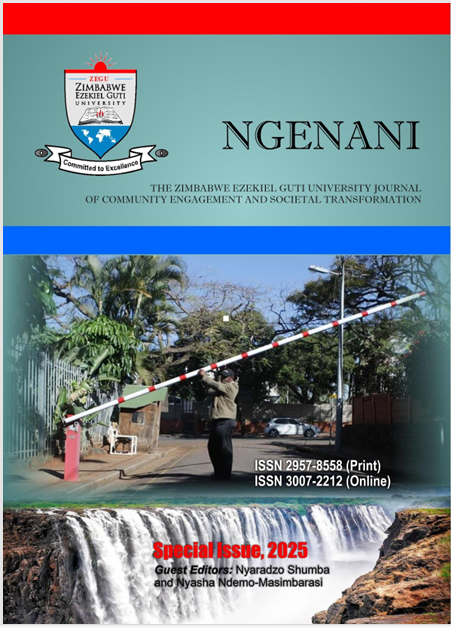Academic Performance among Girls in Rural Chiredzi District, Zimbabwe: Reasons and Interventions in Addressing Poor Results
DOI:
https://doi.org/10.71458/0hfdtq05Keywords:
cultural practices, educational equity, ethnicity, gender equality, gender hegemonyAbstract
Global trends on academic performance show that overall, girls outperform boys at primary and secondary school levels. Some have attributed this to affirmative action policies and practices. Even the Zimbabwe Schools Examinations Council (ZIMSEC) reports show similar trends for over 10 years up to 2023. Surprisingly, the trend was different in Chiredzi rural primary schools, thus compelling the study ingrained in the feminist lens, to establish the reasons for the discrepancy with the view for corrective interventions. Drawing from the documented school-based and public Grade Seven academic results from 2020 to 2023 and the girls’ academic records, a qualitative case study constituting two school heads and four of teachers, girls and schools parent board members equitably selected from two primary schools was instituted for face-to-face interviews. The thematic content analysis shows ethnicity, gendered teacher deployment, negative effects of the donor community involvement in girl child socialisation and maternal parent emigration as the major reasons for the poor academic performance among the girls in Chiredzi. School community based donor activities regulatory framework, community resocialisation on migration and gender rights, streamlining of gender in teacher deployment and site-based evaluation of gender policies and practices, are recommended.




